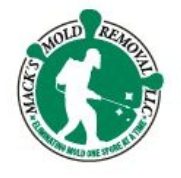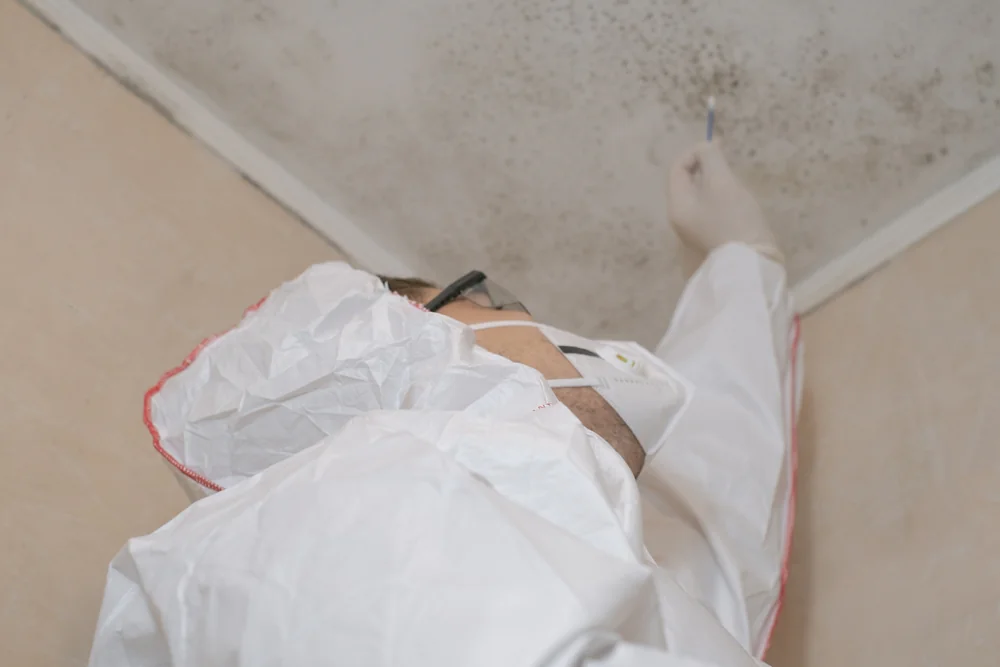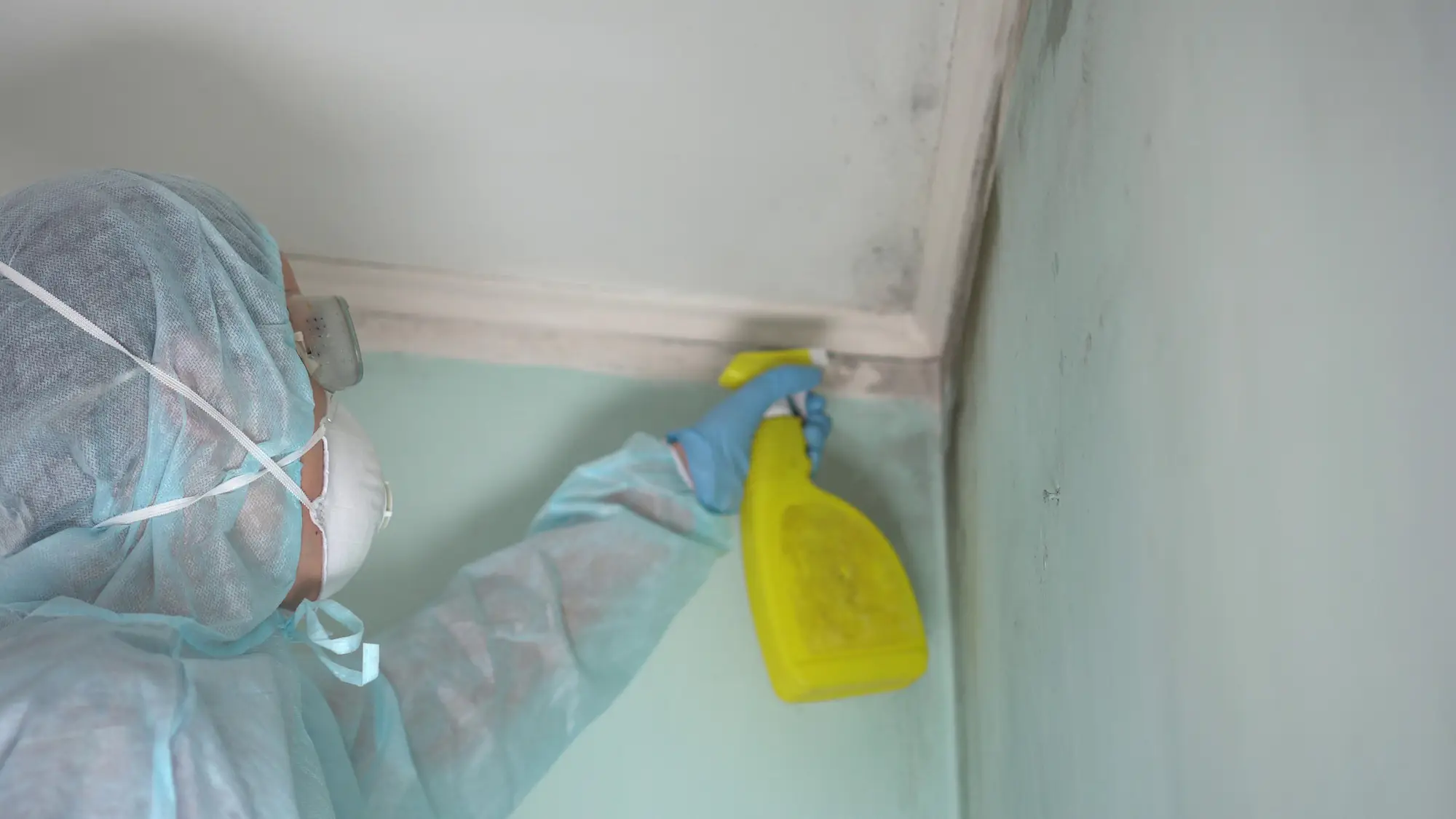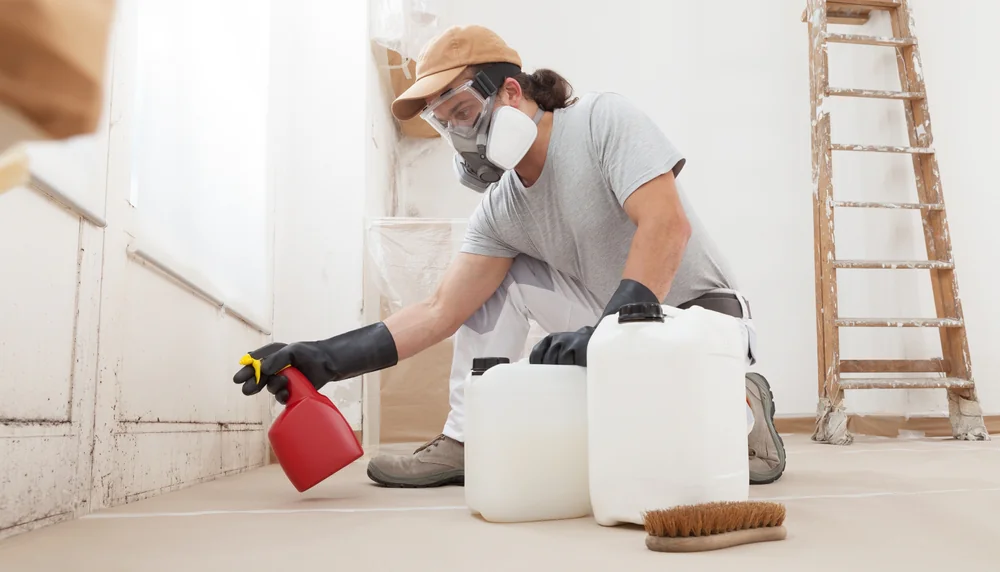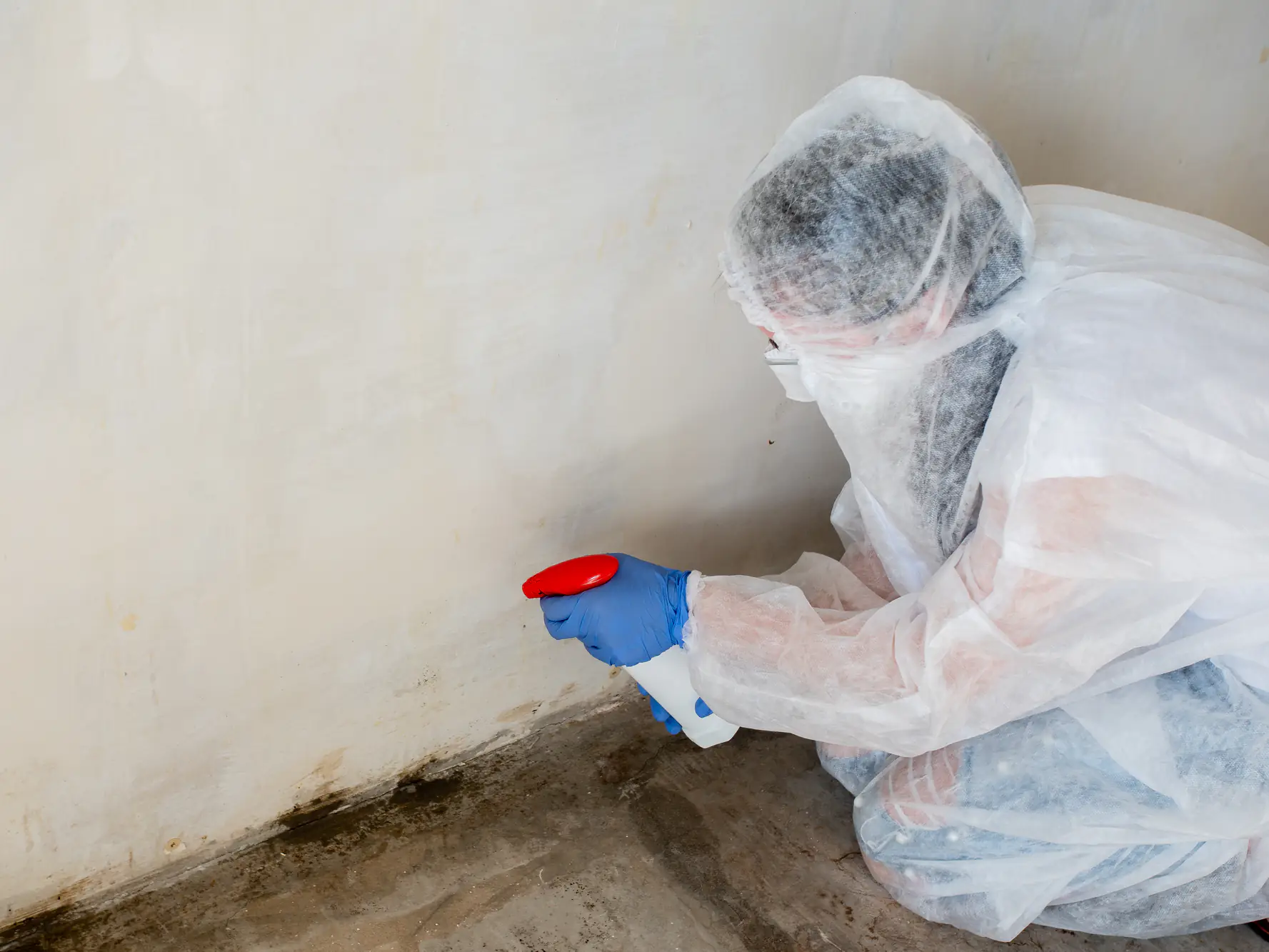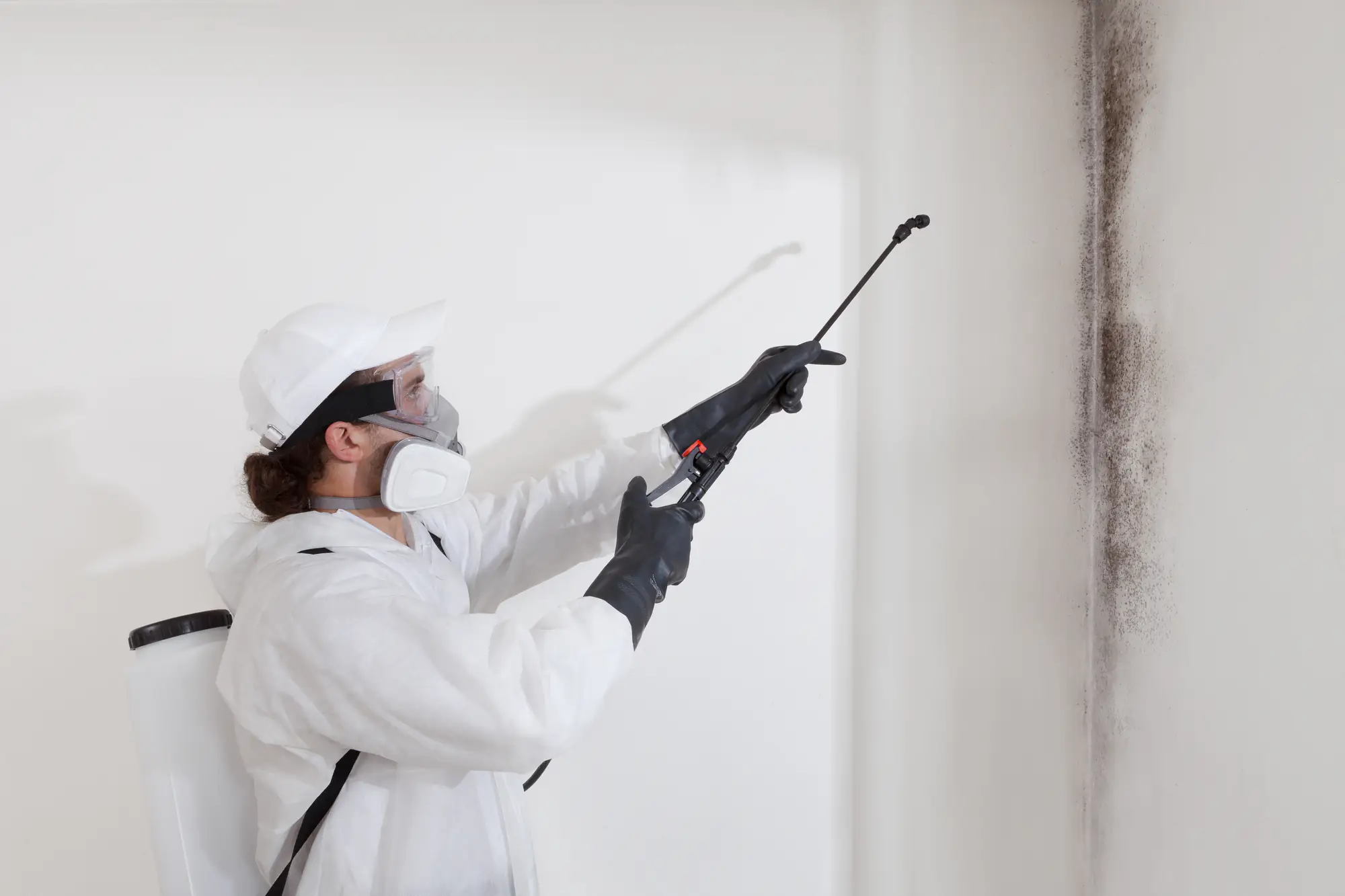Summary:
Persistent Musty Odors That Won't Go Away
That smell isn’t just “old house character.” A persistent musty odor is often the first and most reliable indicator of hidden mold growth in your home.
Mold produces microbial volatile organic compounds as it grows and reproduces. These compounds create that distinctive earthy, damp smell that seems to linger no matter how much you clean or air out the space. The smell is usually strongest in areas with poor ventilation—basements, attics, closets, or rooms that feel stuffy.
If you’ve become nose-blind to the odor but visitors comment on it, that’s a red flag. Your home shouldn’t smell musty, period.
When Musty Smells Signal Hidden Water Problems
Musty odors often indicate moisture problems you can’t see. Water might be seeping through foundation cracks, collecting behind walls from minor plumbing leaks, or building up in poorly ventilated areas.
In Middletown and Springfield, PA, our humid climate creates perfect conditions for mold growth. When that humidity combines with poor air circulation, organic materials like drywall, wood, and insulation become feeding grounds for mold spores.
The smell might be strongest in specific areas—near a particular wall, around windows, or in corners where air doesn’t circulate well. This localized odor often points to a moisture source that needs immediate attention.
Don’t mask the problem with air fresheners or assume it will go away on its own. Covering up musty odors with fragrances is like putting a band-aid on a broken pipe—you’re not addressing the root cause.
Professional mold testing can pinpoint exactly where moisture is accumulating and what types of mold are growing. This information is crucial for developing an effective remediation plan that actually solves the problem rather than just treating symptoms.
Why Your Nose Might Miss the Warning Signs
Here’s something most homeowners don’t realize: you can become desensitized to mold odors in your own home. When you’re exposed to the same smell daily, your brain essentially filters it out as background noise.
This is why friends or family members might comment on a musty smell that you no longer notice. It’s also why real estate agents often recommend having your home’s air quality tested before listing—potential buyers will immediately detect odors you’ve grown accustomed to.
Some types of mold produce stronger odors than others. Black mold, for instance, often has a particularly pungent, almost sweet smell. Other molds might produce subtler scents that are easier to dismiss or attribute to other causes.
The location of the smell matters too. Mold growing in your HVAC system will circulate odors throughout your entire home, making it harder to pinpoint the source. Mold in wall cavities might only be noticeable when you’re close to the affected area.
Professional mold testing doesn’t rely on smell alone. We use air sampling and surface testing to detect mold spores even when there’s no noticeable odor. This scientific approach gives you definitive answers about your home’s air quality.
Want live answers?
Connect with a Mack's Mold Removal expert for fast, friendly support.
Unexplained Health Symptoms in Your Family
Your family’s health often provides the earliest warning signs of mold exposure. If multiple household members are experiencing similar symptoms that seem to improve when they leave the house, mold could be the culprit.
Common mold-related health issues include persistent coughing, sneezing, throat irritation, headaches, and fatigue. Some people experience more severe reactions like memory problems, joint pain, or worsening asthma symptoms.
Children and elderly family members are often the first to show symptoms because their immune systems are more vulnerable to mold exposure.
Recognizing Mold-Related Health Patterns
Pay attention to when symptoms occur and where they’re most severe. Do you feel congested every morning? Does your child’s asthma act up more at home than at school? Do headaches seem worse in certain rooms?
Mold symptoms often follow predictable patterns. They tend to be worse in areas where mold concentrations are highest and may improve when you spend time away from home. Unlike seasonal allergies, mold symptoms can persist year-round and often worsen during humid weather.
Some family members might be more sensitive than others. One person might experience severe respiratory symptoms while others only notice mild irritation. This doesn’t mean the less-affected family members aren’t being exposed—it just means their bodies are responding differently.
Keep a simple log of symptoms, noting when they occur and where family members are when symptoms are worst. This information can be valuable for both mold inspectors and healthcare providers.
Professional mold testing can confirm whether your home’s air quality is contributing to health problems. If testing reveals elevated mold levels, addressing the source often leads to significant improvement in family health and quality of life.
When to Connect Health Symptoms to Indoor Air Quality
Not every cough or headache is mold-related, but certain combinations of symptoms warrant investigation. If multiple family members develop respiratory issues simultaneously, especially if they improve when away from home, indoor air quality should be on your radar.
Recent changes in your home can also trigger mold growth and associated health symptoms. Did symptoms start after a plumbing leak, roof repair, or flooding? Have you noticed issues since moving into a new home or after renovations?
Mold exposure affects everyone differently based on age, overall health, and individual sensitivity. Some people experience immediate reactions, while others might develop symptoms gradually over months of exposure.
Pregnant women, infants, elderly individuals, and those with compromised immune systems face higher risks from mold exposure. If anyone in your household falls into these categories, even minor symptoms should prompt professional testing.
Don’t wait for symptoms to become severe. Early detection and remediation prevent minor health irritations from developing into serious respiratory conditions. Professional mold testing provides the scientific data you need to make informed decisions about your family’s health and safety.
Take Action Before Small Problems Become Major Expenses
Hidden mold doesn’t stay hidden forever. What starts as a minor moisture issue can quickly escalate into a major remediation project costing thousands of dollars.
Professional mold testing gives you the information you need to address problems while they’re still manageable. Early detection protects both your family’s health and your financial investment in your home.
If you’ve noticed persistent musty odors, unexplained health symptoms, or any signs of water damage in your Middletown or Springfield home, don’t wait to investigate. We provide comprehensive inspections that give you peace of mind and protect what matters most.
